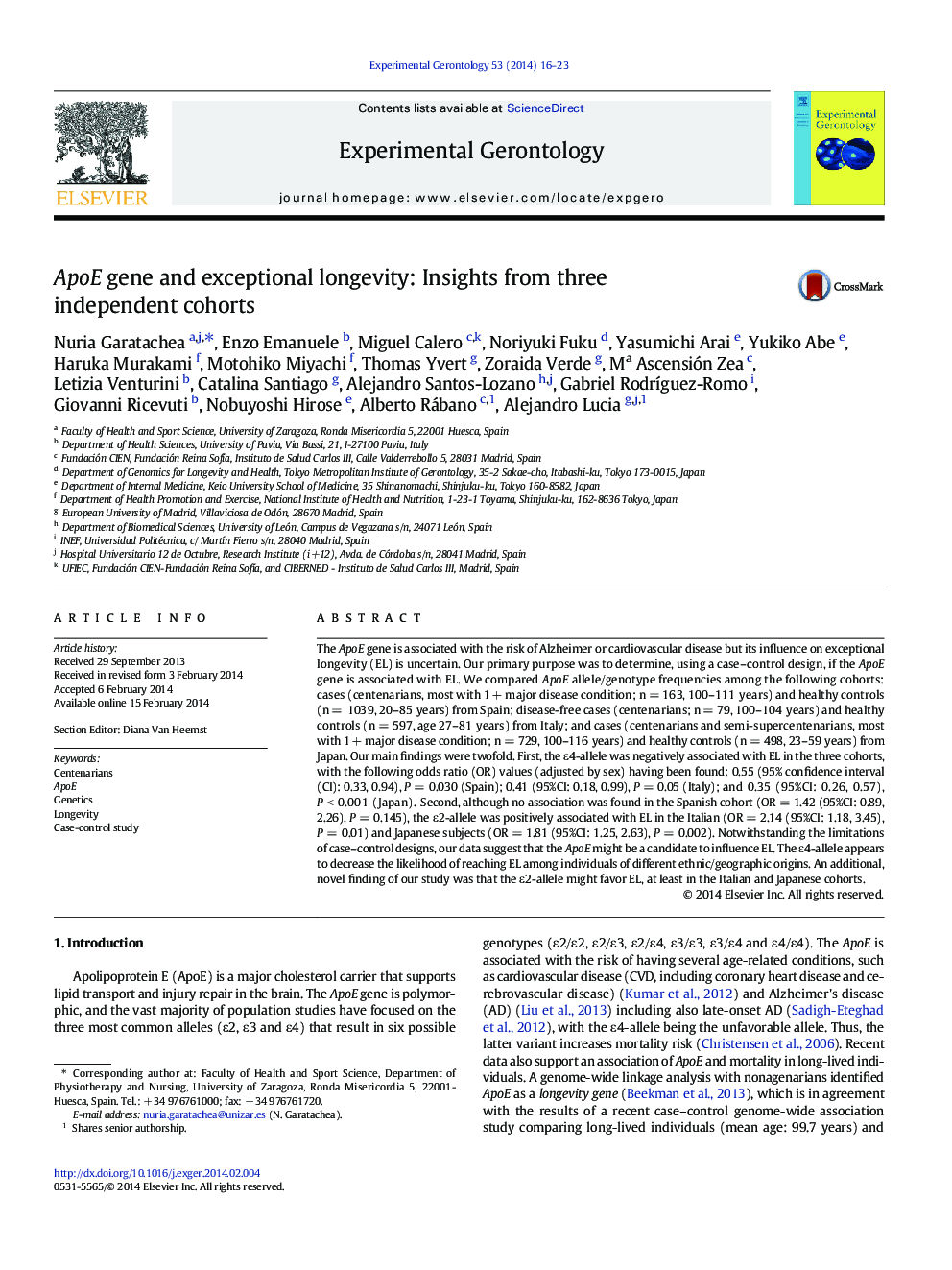| کد مقاله | کد نشریه | سال انتشار | مقاله انگلیسی | نسخه تمام متن |
|---|---|---|---|---|
| 1906238 | 1534888 | 2014 | 8 صفحه PDF | دانلود رایگان |

• The ApoE ε4-allele is negatively associated with exceptional longevity (EL).
• The ApoE ε2-allele is positively associated with EL in the Italian and Japanese cohorts we studied.
• Overall, the ApoE is a potential candidate to influence the likelihood of reaching EL.
• Future longitudinal studies are needed to corroborate our results.
The ApoE gene is associated with the risk of Alzheimer or cardiovascular disease but its influence on exceptional longevity (EL) is uncertain. Our primary purpose was to determine, using a case–control design, if the ApoE gene is associated with EL. We compared ApoE allele/genotype frequencies among the following cohorts: cases (centenarians, most with 1 + major disease condition; n = 163, 100–111 years) and healthy controls (n = 1039, 20–85 years) from Spain; disease-free cases (centenarians; n = 79, 100–104 years) and healthy controls (n = 597, age 27–81 years) from Italy; and cases (centenarians and semi-supercentenarians, most with 1 + major disease condition; n = 729, 100–116 years) and healthy controls (n = 498, 23–59 years) from Japan. Our main findings were twofold. First, the ε4-allele was negatively associated with EL in the three cohorts, with the following odds ratio (OR) values (adjusted by sex) having been found: 0.55 (95% confidence interval (CI): 0.33, 0.94), P = 0.030 (Spain); 0.41 (95%CI: 0.18, 0.99), P = 0.05 (Italy); and 0.35 (95%CI: 0.26, 0.57), P < 0.001 (Japan). Second, although no association was found in the Spanish cohort (OR = 1.42 (95%CI: 0.89, 2.26), P = 0.145), the ε2-allele was positively associated with EL in the Italian (OR = 2.14 (95%CI: 1.18, 3.45), P = 0.01) and Japanese subjects (OR = 1.81 (95%CI: 1.25, 2.63), P = 0.002). Notwithstanding the limitations of case–control designs, our data suggest that the ApoE might be a candidate to influence EL. The ε4-allele appears to decrease the likelihood of reaching EL among individuals of different ethnic/geographic origins. An additional, novel finding of our study was that the ε2-allele might favor EL, at least in the Italian and Japanese cohorts.
Journal: Experimental Gerontology - Volume 53, May 2014, Pages 16–23